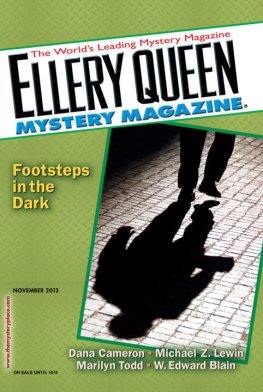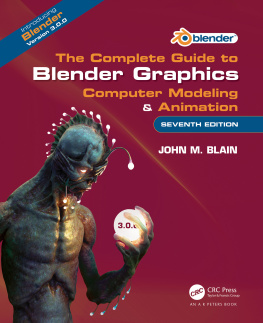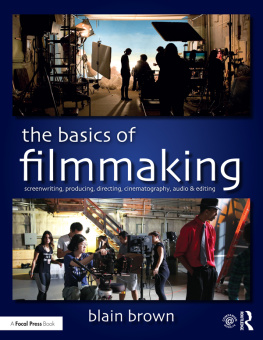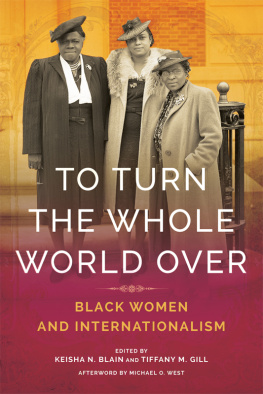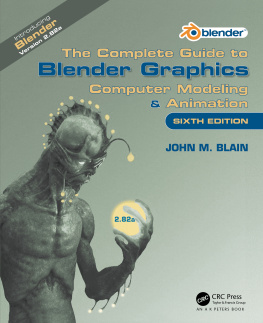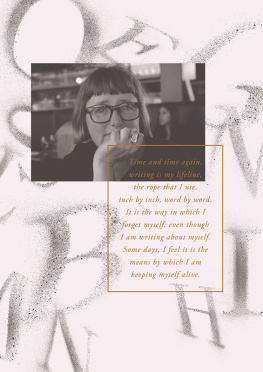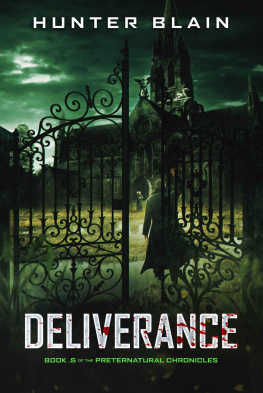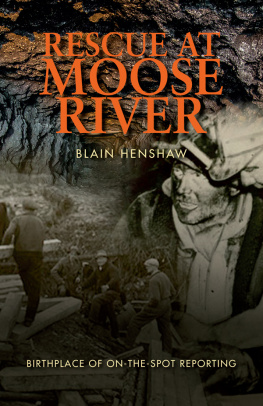Foreword
The dedication of this work comes in the form of an apology. A heartfelt apology to the three ladies without whom I certainly would never have enjoyed a career in education, would never have led the marvelous lifestyle that Ive experienced, and certainly would have never written anything more than perhaps a bad term paper.
The first lady who comes to mind was my motherthe lady who took me into her home and became responsible for a young boy who was suffering the ravages of severe burns. She nursed me back to health and, over the years, molded and guided me. She taught me to never lose faith in myself and kept telling me that I can and that I will be good someday at whatever I choose. A framed reminder of that presently sets above my desk today, containing the words I will do today what others wont. I will do tomorrow what others cant.
For the years I spent attending Belt Valley High School, my English teacher was a bespectacled lady named Mrs. Eva Stober. This imposing figure demanded respect. Some of the lines we heard quite frequently from her were things like, Write this, Memorize that, so we learned how to diagram sentences, adverbs, and other parts of speech. We had to memorize the balcony scene from Romeo and Juliet and learned to appreciate all different literature genre. Im in the process of completing a career as a teacher and coach that spans several decades. I still recall as if it were yesterday her admonishing me to Proof your work, usually followed a short time later by the words Proof it again. On numerous occasions, she told me, You have the talent to become a good writer if you just will.
Finally, my guardian angel, who stood by my side as we raised the family through good times and bad. She was always the stabilizing force who helped us create and appreciate traditions and values that will last for generations to come. My beloved companion, traveling buddy, and sweetheart, who I will hold dear to my heart always, my wife, Paulette, was considered by all who knew her to be beautiful both inside and out. She was taken suddenly in a tragic hiking accident in a foreign land while involved as we always seemed to be in another time, another culture, and another place.
So to these ladies who never received a proper appreciation or thank you, I can only express that my memories, my love, and my gratitude of and for you will remain forever.
Nobel prizewinning playwright George Bernard Shaw, who is most well-known for Pygmalion , penned in Back to Methuselah the expression, Some men see things as they are and ask why. I dream of things that never were and ask why not.
Nearly half a century later, during the tumultuous times of 1968, Robert Francis Kennedy utilized these immortal words as his presidential campaign slogan. Historians and political writers examined his stands on civil rights, Vietnam, and the poor and have discerned that he would have been an outstanding leader. Robert Kennedy was assassinated on June 6, 1968.
The groundwork for this writing began in the 1960s and went on to examine events occurring later in the century. Interest in What Man Has Doneto Man developed over a series of events, observations of everything from the cathedrals and monuments to the ghettos and remnants of mass destruction.
As we progress, you will walk with me through the park with no playground, the streets of virtually abandoned, rundown villages where cotton was to be king, through the barracks of accomplished assassins where the halls are adorned with photographs of the faces of those who were led to destruction. You will meet a Babcha, and you will weep when you learn about a people clinging to hope for a better life for their children when it had blown away years earlier.
We will sit on a ferris wheel in an amusement park built for entertaining the people of the community whose population numbering fifty thousand became zero overnight. You will see huge piles of glasses and tens of thousands of pairs of shoes and classrooms with the desks of crayons and books left exactly as they were decades previously. I will help you to sense smells that will permeate your nostrils, smells that you might imagine to be of the salt sea dust emanating from the bed of a forgotten body of water or perhaps the musty odors that remain from the crematoria or the death chambers used more than a half a century ago.
You will not enjoy this book. It is guaranteed to make you cry, force you to be angry, and hopefully entice you to do additional reading and learn on your own more about mans potential to destroy himself. Youll be taken aback as I chastise our own countrys leaders, but as we look closer at facts and events, you wont be able to not agree with the analysis. Another ardent wish is for you to not forget the message conveyed, return to it many times and subsequently pass along its message to others.
This is indeed a different look at significant past events because it dares to do more than chronologize. It looks to provide a new perspective. In many instances, Ill give you enough detail to understand the event or motivations behind it. This capsulized version is based upon volumes of data and information, but to be readable and digestible, it needs to be more a broadside or narrative and not a treatise.
So as you turn the pages and journey with me throughout our stories, be prepared as you will never look at history the same again.
Introduction
You arent going to like this book. Youll be repulsed by its development and sickened by the way it plays out all because of those who play the parts. Winston Churchill writing to his foreign secretary Anthony Eden described the Holocaust as the most horrible single crime in history.
Italian political philosopher Norberto Bobbio gives us his storied perspective: Nazi extermination camps were not one of the events, but the monstrous, perhaps unrepeatable event of human history. It will be remembered as the central event, the scourge of this century.
At no other time or place has one seen a phenomenon so unexpected, never have so many lives been extinguished in so short a time and with so lucid a combination of technological ingenuity, fanaticism, and cruelty. Heinrich Himmler, commandant of Auschwitz and the SS, is one of the overseers who was most directly associated with this mass-murder campaign. Our system is, he would say, so heinous and despicable that should we tell the world about it, they would not believe us. But they would brand the teller of this tale a fantastic liar.
Truth be believed or not, the Holocaust is the burden of the Twentieth Century. The central theme of the story of the Holocaust is not one of regeneration and rebirth, goodness or resistance, liberation or justice, but death, destruction, dehumanization, and above all, loss. We must deal with the meaning of the Holocaust and will do so with an in-depth look at Sobibor, Treblinka (mans hell on earth), and AuschwitzBirkenau. Another aspect of concern will be to examine the absence of meaning by confronting the fact that mass murder was a self-justifying goal of state policy.
As these sides of the topic are approached, one is reminded of the words of historian Yehuda Bauer, who enunciated three commandments as the human imperative of the Holocaust: Thou shalt not be a victim. Thou shalt not be a perpetrator. Above all, thou shalt not be a bystander. It is the third advisement that will be of the greatest focus and concern for us.



